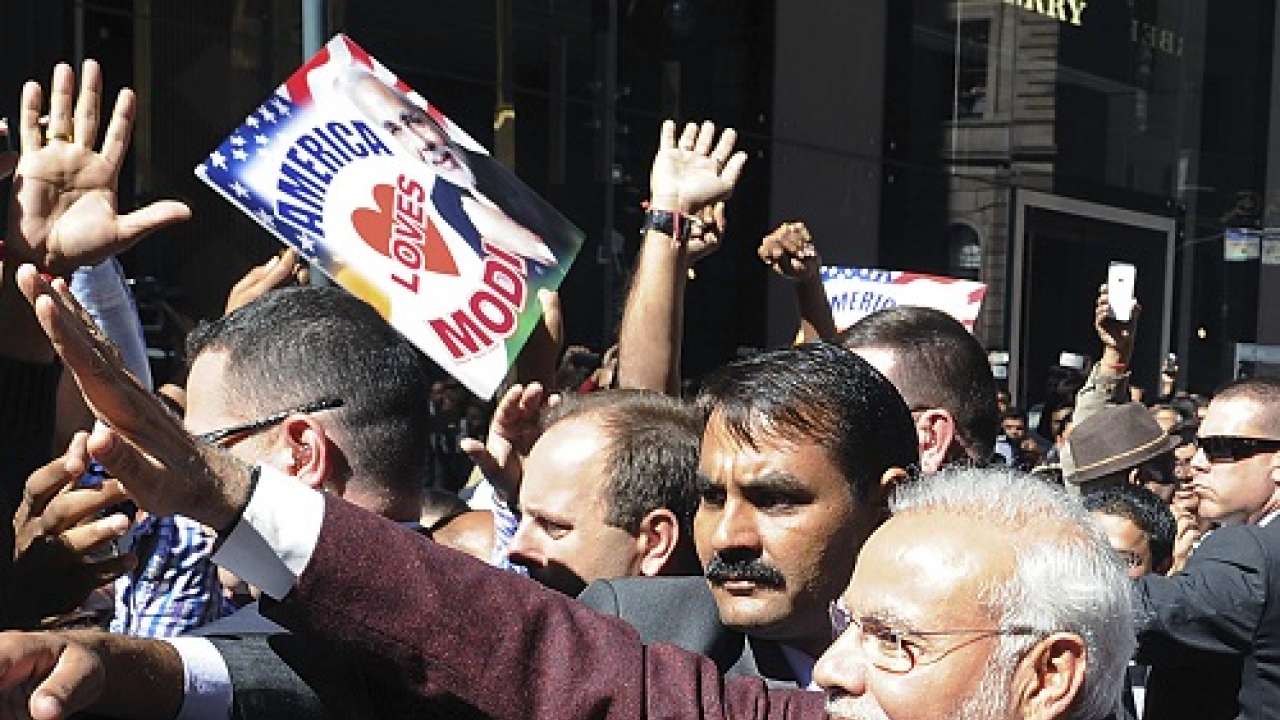
There is intense media scrutiny about Prime Minister Narendra Modi’s American trip for political as well as diplomatic reasons. Despite the buzz and excitement in the media, the political establishments in New Delhi and Washington seem to take a measured view of the state of relations between the two countries. The India-US joint statement issued at the end of the Modi visit covers all the key aspects, including the World Trade Organization (WTO) impasse, and the two leaders direct the officials of the two countries “to consult urgently along with other WTO members on the next steps”. A commitment has been expressed that the US will push for India’s membership in the Nuclear Suppliers Group (NSG), Missile Technology Control Regime (MTCR), the Wassenaar Arrangement (which deals with control on defence exports and their use) and the Australian Group (a watchdog on biological and chemical weapons).
The reiteration on the issue of the dismantling of “safe havens for terrorist and criminal networks” and “to disrupt all financial and tactical support for networks such as al-Qaeda, Laskhkar-e-Taiba, Jaish-e-Mohammad, the D-Company and the Haqqanis” remain formal and non-committal on paper because all these organisations are known to operate from Pakistan territory. Much is being read into the reference to the settling of maritime border disputes in South China Sea but it is nothing more than diplomatic tut-tut. There is a more pointed reference to North Korea’s nuclear weapons and ballistic missile programmes. Interestingly, while discussing the threat posed by the Islamic State of Iraq and Syria (ISIS), the joint statement specified cooperation with regard to dealing with civilians stranded in the war zones. If there was a request from Obama to Modi for India’s participation in the global war against ISIS, it has not been stated.
It is Modi’s statement at his press interaction along with President Barack Obama that there is a clearer indication of some of the nitty-gritty of the discussions between the two leaders. Modi said in his statement in Hindi: “Meine President Obama sey yeh aagrah kiya ki wah aise kadam utthaaye jis sey bharat ki service companiyaan US ki market ko aasaani sey access kar sakey (Official English rendering: I also sought President Obama’s support for continued openness and ease of access for Indian services companies in the US market)”. Obama on his own part must have sought support for American businesses in India though it has not been stated. The Prime Minister assured that changes are being made in policy and process which will make ease doing business in India and that this will improve the economic ties between the two countries. Modi has asked American defence companies to come to India and be part of the arms production sector. This is the first time that such an open offer has been made at the official level.
Modi, the master of populist rhetoric, remains a clear-eyed, hard-nosed realist. He seems to be aware that nothing outstanding has emerged from this round of bilateral talks. This is evident from his statement at the press conference in which he said that there was great interest and enthusiasm in the US about India. That this will be the inspiration to take the bilateral ties to a new level. It is indeed a measured view. In contrast, the Prime Minister had struck a more optimistic note on his visit to Japan and during the Chinese President Xi Jingping’s visit to India last month. It is indeed an important trip and both sides have dealt with it in the most business-like manner, which is a sign of maturity and a sense of mutual trust.